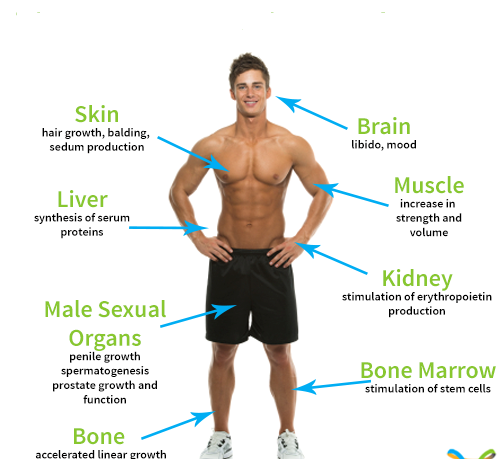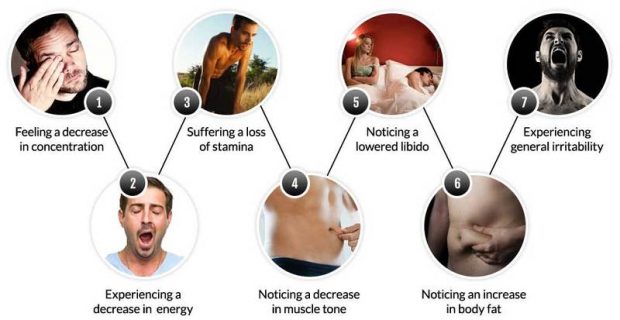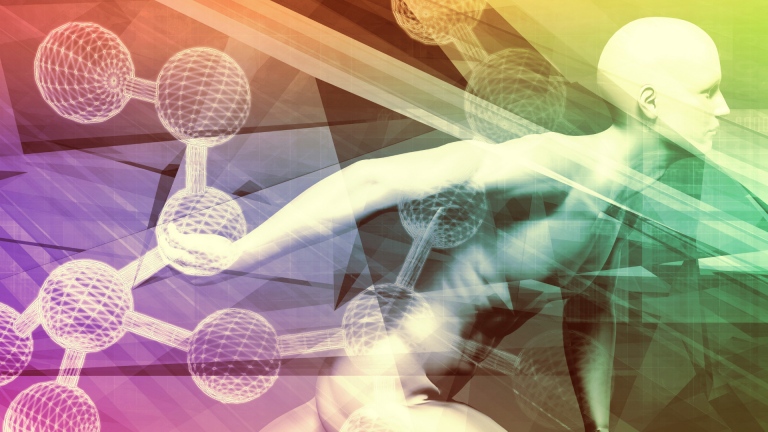What Are the Symptoms of Low Growth Hormone?
It’s common knowledge that the sooner you focus on healing and rehabilitating an injury, the greater your success of returning that injury or issue to its most normal function and at maximum capacity. The same thing goes for your body and its relation to hormones. Hormone-sensitive tissue in your body that has seen a reduction in required hormone delivery due to aging, injury, or abnormal maladies suffers the most. Moreover, the longer these tissues are deprived of said needed hormone, the more they have been negatively affected and stressed in their attempt to function normally.
For this very reason, we need to be in tune with our bodies, receptive to changes, and with the common, deeply founded understanding that one must never procrastinate on issues of their health. If something feels different or strange, we should never chalk it up to something simple, especially if this manifestation lingers from one day to the next. The problem is, the longer we experience issues and ignore them, the more common or normal they begin to feel to us, and the easier it is to ignore them…. possibly even until it’s too late.
How Do We Know If It’s Time to Look Into an HGH Therapy Protocol?
You may tell yourself; I’m not a doctor, so how do I know if I’m experiencing Symptoms of Low Growth Hormone? The first thing to remember is that Growth Hormone correlates to every tissue your body is composed of. As is relayed in its name, it helped grow every aspect of your body; thus, lower numbers of this protein-building hormone can cause abnormalities or fluctuations in new, regenerating cells, leaving room for irregularities. This includes malformations and disease in the more deprived areas. A person with too little adult growth hormone will experience symptoms indicating that action should be taken sooner than later to replenish those flailing numbers.
The following are examples of Symptoms Low Growth Hormone:
- A higher level of body fat, especially around the waist
- Anxiety and depression
- Decreased sexual function and interest
- Fatigue
- Feelings of being isolated from other people
- Greater sensitivity to heat and cold
- Less muscle (lean body mass)
- Less strength, stamina, and ability to exercise without taking a rest
- Reduced bone density and a tendency to have more bone fractures as they get older
- Changes in the makeup of the blood cholesterol.
People with adult growth hormone deficiency have higher than normal levels of low-density lipoproteins than their high-density lipoproteins. Another prevalent issue in blood results for people with low Growth Hormone is that they also tend to have higher triglyceride levels. (Triglycerides are another type of sugar and fat that circulate in the blood and contribute to blocked blood vessels.) We reiterate that Growth Hormone plays a role in creating all tissue in the body.
Low levels of Growth Hormones will eventually manifest themselves physically, as the regeneration of your cells, which is constant for our bodies, will be a lackluster production. Abnormal cells promote illness, disease, and irregularities in our bodies. This is why it’s imperative always to be wary if you are experiencing Symptoms of Low Growth Hormone.
If you notice:
- Grayer, thinning, or more fragile hair.
- Dry, non-elastic skin.
- An acceleration of wrinkles or the appearance of damaged skin
- Brittle nails
- Dark Circles around the eyes
- A change in body composition and even shape
You may be experiencing the onset of Growth Hormone depletion. It would be best if you took action to, at the minimum, understand where your Growth Hormone levels are. If you have a Growth Hormone depletion and catch it early, please note it’s been documented to significantly improve a person’s quality of life and optimize their health. Studies show that with proper hGH treatment, patients can go on having a healthy, extended, health-interference-free life.
There is no point in living for a long time if you are miserable. It’s our quality of life that we have to strive to perfect. Symptoms Low Growth Hormone should be addressed immediately to ensure you are happiest tomorrow. Contact us at AAI clinics if you’d like to speak to someone about getting your Growth Hormone levels tested. Tell them if you’ve experienced Symptoms of Low Growth Hormone. Our advisors are experts on the subject and will give you educated, medically oriented-answers to your inquiries.
Suppose you do not want to speak with anyone but are still interested in discovering your Growth Hormone health levels. In that case, you can visit our E-Commerce page by clicking here and purchasing a private, at-home testing kit that will provide clear, simple instructions on obtaining and submitting your specimen. For at-home kits, results should be expected within two weeks. However, if you speak with us directly and we send you to one of our testing centers, which will be located near your home if you provide us your Zip Code, your results will be available in 24 hours.
**NOTE** The content in this blog is subject to interpretation and is the opinion of the content writer. We do not claim it to be fact. We encourage you to consult a medical doctor before taking any prescribed medications or supplements.
HGH Therapy Information
- HGH Therapy
- What Is HGH?
- How Does HGH Work?
- What Can HGH Therapy Do?
- What to Expect from Therapy
- Symptoms of Low HGH?
- Causes of Low HGH?
- Protocol for HGH Therapy
- Risks of Low HGH in Men
- Risks of Low HGH in Women
- Omnitrope Brand HGH
- Zomacton Brand HGH
- Norditropin Brand HGH
- Genotropin Brand HGH
- HGH Side Effects
**NOTE** The content in this blog is subject to interpretation and is the opinion of the content writer. We do not claim it to be fact. We encourage you to consult a medical doctor before taking any prescribed medications or supplements.
Conclusion
Supporting Hormones health is essential for overall well-being and vitality. By incorporating regular exercise, proper nutrition, adequate sleep, stress management techniques, and IV therapy, you can help maintain optimal testosterone levels and lead a healthy, balanced life. Always consult a healthcare professional before making significant changes to your lifestyle or starting any new treatments to ensure they suit your needs.
At AAI Rejuvenation Clinic, we advise anyone to think seriously about beginning Hormone treatment if there is no medical need for it. However, we will take every precaution to ensure that you read your program’s positive benefits by providing the latest at-home hormonal mouth-swab testing to ensure we are continually monitoring your progress and aware of any adverse side effects. Fill out the Medical History Form, or if you need more information, call us at (866) 224-5698 or (866) AAI-Low-T.
Low Hormone Symptoms
- Motivation
- Sex Drive and Desire
- Depression
- Fatigue
- Erectile Dysfunction
- Cholesterol
- Low Energy
- Memory Loss
- Osteoporosis
- Wounds & Illness
- Muscle Mass
- Sleep Disturbances
- Thyroid Dysfunction
- Weight Gain
]]>




